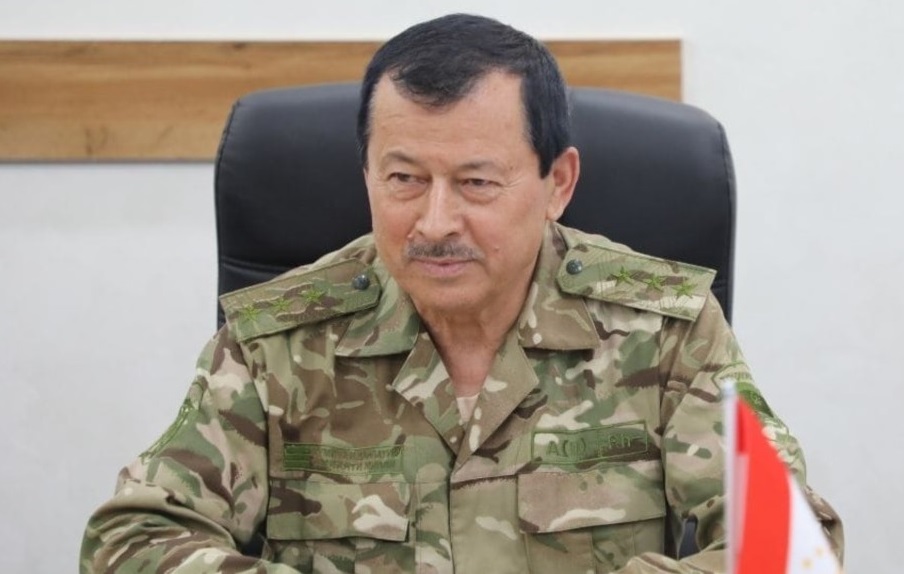Dushanbe to other former Soviet countries: every 'subversive' is a terrorist
The powerful head of the National Security Committee, Yatimov, called on his CIS counterparts to act 'as one bloc' and set aside 'prudence'. In Tajikistan, human rights associations complain of persecution of social activists, journalists and ordinary citizens. Authoritarian regimes the only real thread in a region where post-imperial conflicts smoulder under the ashes.
Dushanbe (AsiaNews) - The head of the Committee for National Security of Tajikistan (GKNB), Saimumin Yatimov, launched an appeal during the meeting in Minsk of his counterparts from the former Soviet countries of the Commonwealth of Independent States, asking them to abandon the attitudes prudent, to unite in a more decisive fight against terrorism.
The strongman of Tajikistan had anticipated this message by meeting journalists, to whom he had explained that "we must free ourselves from the petrified dogmatism that considers subversive activities and terrorism phenomena as separate and independent events from each other".
In his opinion, the tasks of the various security and counter-espionage services must concentrate on finding the connection between these events, and clarifying the overall strategies that determine them.
Yatimov insists on the fact that "all these phenomena are necessarily inspired, subsidiary to each other, organised, planned and implemented by concrete subjects of international relations", therefore an approach suited to the current times is needed, more "deep and qualitative in operational reactions", to agree on common steps to be taken "for the good of our peoples".
The statements released by the press, in particular by the Tass agency, do not clarify the details of these plans to be implemented together, even if the general impression is that the advice is to give more strength to the security structures than to the political institutions of the Interested countries, a phenomenon quite evident in Tajikistan, where Yatimov seems to impose himself on President Emomali Rakhmon himself, but with important signals also in Russia in the relationship between Vladimir Putin and Nikolai Patrushev, and partly in the other CIS countries.
Human rights associations in Tajikistan constantly criticize Dushanbe's government for its persecution of political and social activists, journalists and ordinary citizens, preventing any form of free expression of opinions. The many people arrested, as also happens to Putin's opponents, receive sentences of infinite periods of detention, often increased "in the course of the case" with other charges, a vexatious technique reminiscent of Stalin, to disappear in the "Gulag meat grinder" as has Alexei Naval'nyj, all trace of whom has been lost for two weeks.
The slogan launched by Yatimov for "the CIS countries to act as a single bloc on all security issues" stands out against the background of the conflicts between the same ex-Soviet countries, Russia and Ukraine, Armenia and Azerbaijan, Tajikistan itself for the borders with Kyrgyzstan, not to mention Russia's relentless campaign of harassment against Central Asian migrant workers. The calls for friendship and collaboration appear dictated rather by the fear of a definitive explosion of post-imperial conflicts.
The CIS is at the origin of the era opened by the collapse of the Soviet Union, when on December 8, 1991 the leaders of Russia, Belarus and Ukraine met and organized a meeting two weeks later in Alma-Ata, then the capital of Kazakhstan , together with the 8 heads of the other states formed on the basis of the Soviet republics (all except the three Baltic countries) to sign an overall agreement of collaboration "with equal rights" in the economic, political and guarantee fields for the overall security and of each people .
Today, that group remains Azerbaijan, Armenia (with a tendency towards exit), Belarus, Kazakhstan, Kyrgyzstan, Russia, Tajikistan and Uzbekistan. Turkmenistan has long remained entrenched in its policy of "absolute neutrality", Georgia experienced its first real conflict with Russia and Moldova broke away definitively after the invasion of Ukraine.
The remaining states are all characterized by their authoritarian regimes, more or less explicit, and the increasingly intrusive pressure of the structures of force and security. The true authoritarian regimes
14/04/2022 09:32
28/01/2022 09:36







.png)










